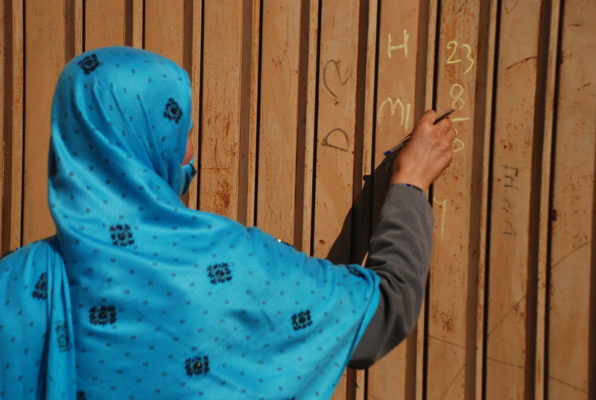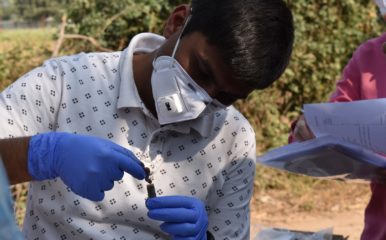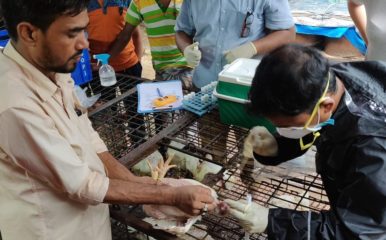
GCRF Hub appeals for urgent action to assist Afghan researchers
Published on 06/09/2021

EC/ECHO/Pierre Prakash
The GCRF Gender, Justice and Security Hub, has issued a statement relating to its Afghan researchers and high-risk individuals in Afghanistan. In solidarity with a fellow GCRF Hub, we are reproducing that statement in full below:
“We are an ODA funded research programme which is part of the Global Challenges Research Fund of UK Research and Innovation (UKRI). We were funded to establish a Hub to advance Sustainable Development Goal (SDG) 5 on gender equality; SDG 16 on peace, justice and strong institutions; and the implementation of the Women, Peace and Security (WPS) agenda. In this context, we have been working with Afghan colleagues to conduct surveys, interviews and support capacity building initiatives on the ground.
“We have lists of high-risk individuals, including their family members, who we are trying to get out. Our colleagues have grown increasingly desperate and anxious about their safety in Afghanistan due to their work on a UK Aid funded programme to advance a celebrated UN agenda and one which the UK is committed to. They work on sensitive projects that include the promotion of women’s rights and gender equality and have been highly visible.
“Their association with our programmes makes them eligible for relocation, UK Government assistance and resettlement in the UK. We completed all the paperwork requested of the UK Government to facilitate their protection, and yet, the UK military has not evacuated any of our colleagues.
“We ask you to support us in appealing to the UK Government to ensure that Afghans who have worked on UK funded development programmes, and who are now at high risk because of this association are included in any agreement and given safe passage out of Afghanistan.
“We call upon the UK Government to undertake the following six actions:
- The UK Foreign Commonwealth and Development Office (FCDO) must expediate the processing of applications submitted under the Afghan Relocations and Assistance Policy (ARAP) scheme and issue visas by email to all eligible Afghans, including those married to settled residents, siblings of settled individuals and those with a connection to the UK as a result of their work, or education.
- To issue letters of receipt of application and acknowledgement to ARAP applicants from the FCDO stating that their application is being assessed so that applicants have evidence of their status.
- The Home Office must immediately open the Afghan Citizens’ Resettlement Scheme and make it operational so that Afghan nationals at risk, who are not eligible for the ARAP scheme, may apply.
- The UK must use its diplomatic power to ensure travel and visas to neighbouring nations with FCDO outposts (Pakistan, Iran, Uzbekistan, Tajikistan, Turkmenistan) through the establishment of a humanitarian corridor.
- The FCDO should establish a programme of swift reception, identification and resettlement to the UK from the neighbouring states of Iran, Pakistan, Tajikistan, Turkmenistan and Uzbekistan.
- In addition to resettlement from neighbouring countries, the UK should provide full relocation support to those who are in third countries and previously applied to the ARAP scheme or may be eligible to apply to the Afghan Citizens’ Resettlement Scheme.
“As we continue to do everything we can to get high-risk individuals the right to travel and to safety, we ask you to not abandon our Afghan colleagues now who have put their lives in danger to advance UK and international agendas.”


